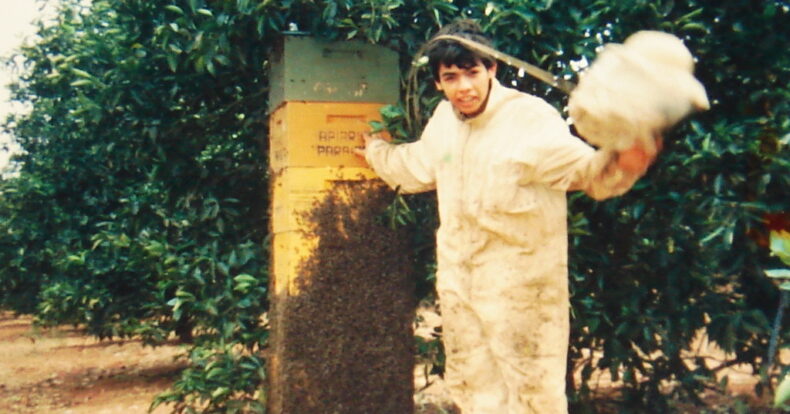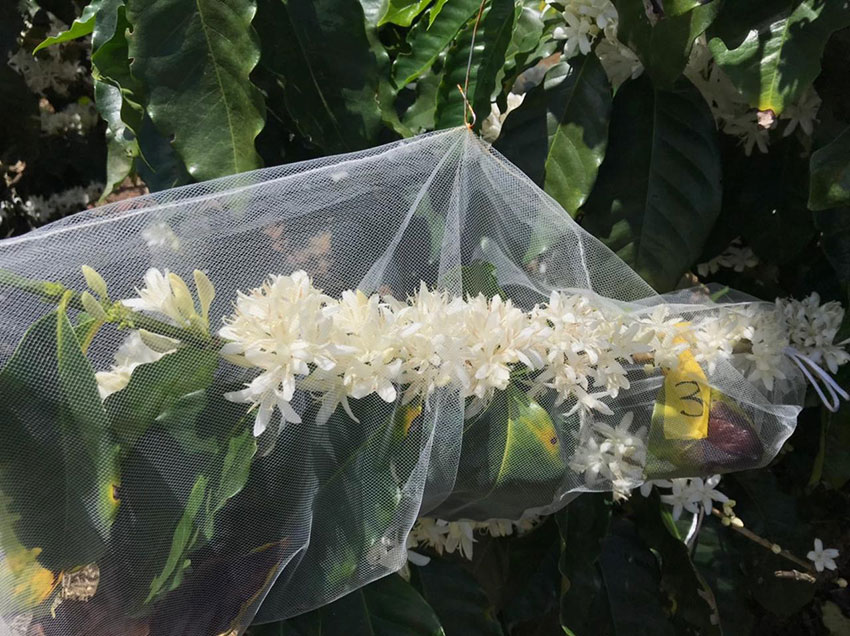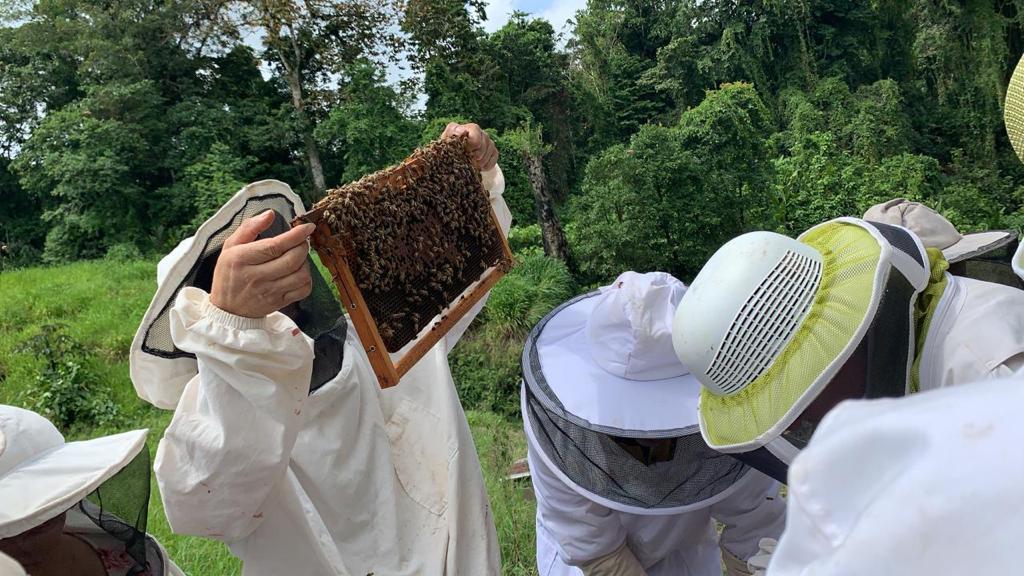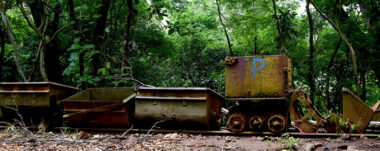Bee Lab: Costa Rica’s laboratory protecting bees and improving coffee and citrus production

Bee Lab: Costa Rican laboratory that protects bees and improves coffee and citrus production
Costa Rica is taking a big step toward protecting its bee populations with the launch of Bee Lab, a beekeeping lab in Naranjo that aims to save over a million bees and boost agricultural productivity by up to 25% in key crops like coffee and citrus. Combining advanced technology with regenerative practices, the initiative promises significant benefits for both farmers and ecosystems.
Technology at the service of pollination
Following successful implementations in Colombia and Cape Canaveral (Florida), Bee Lab has established 20 hives in Naranjo, each equipped with state-of-the-art sensors developed by UBEES. These devices, which use non-invasive IoT technology, enable real-time monitoring of hive health, bee activity, and pollination efficiency, impacting more than 300 hectares of agricultural land.
The technology also reduces traditional beekeeping tasks by two-thirds, allowing farmers to focus on sustainable practices that promote biodiversity and improve crop quality.
Regenerative beekeeping and community empowerment
Bee Lab’s mission goes beyond pollination. Through training in regenerative beekeeping, the lab seeks to generate economic opportunities for small producers and women in rural communities by promoting honey and beeswax production.
Regenerative beekeeping not only protects bees and improves crop productivity, but also strengthens local communities by providing them with the tools they need for a more sustainable and equitable future.
Diana Leal, General Manager of Bee Lab for the Andean Region and Central America.



Proven benefits for coffee and citrus fruits
Scientific evidence supports the positive impact of bees on agriculture. In the case of Arabica coffee, natural pollination can increase yields by 26% and improve bean quality by 30%, which increases the proportion of coffee classified as premium. Citrus crops also benefit from more consistent, higher-quality production, which translates into better market prices.
These advances are essential in the face of climate change challenges, such as heavy rains and prolonged droughts that threaten coffee production. Bee Lab represents an effective strategy to mitigate these effects and strengthen the resilience of Costa Rica’s agricultural sector.
Bee Lab: technology in harmony
For Tomás Gutiérrez, owner of the V&G San Juanillo Coffee farm, where the Bee Lab operates in Costa Rica, the initiative makes a tangible difference.
The installation of the Bee Lab is a way to realize the impact of bees on crops and aligns with our vision of being an innovative farm with regenerative practices that improve coffee production.
Yesterday, Costa Rica celebrated National Bee Day, recognizing the essential role these pollinators play in the health of ecosystems and food security. Between 2010 and 2020, the country lost more than 2,200 beehives in the Los Santos area. This makes initiatives such as Bee Lab crucial. They help reverse this trend and preserve the national agricultural heritage.
Bee Lab is guided by a vision based on science, sustainability, and community empowerment. It stands as an inspiring example of how technology and nature can work together. Together, they create a more resilient and prosperous future.
Sensorial Sunsets
Navigate articles



